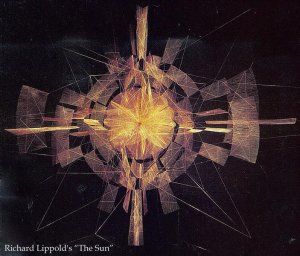This review may contain spoilers
A wonderful realistic drama with brilliant cinematography
I found this BL to be spectacular. There is something so totally different about it and we might not see another like it. It’s unique character is attritutable to the distinct directing style of David Bigander. I think that he has crafted this BL like a great director that puts his own personal stamp on his work which some have described as Bergmanesque with a fusion of Thai cultural influences.
I’ll address the main issue that people have with this series – the pacing. The director has chosen to go with a very sedate flow for this very unique drama and I think it works in most places. It lends this work a sense of spaciousness and tranquility that you’ll seldom see anywhere else. Directors are always under a lot of pressure to trim out any excess filler because every minute of production costs a fortune, so I’m sure that this was something David Bigander fought for, and I appreciate his decision to keep the drama moving at this stately pace.
This is a mature work where we have virtually no tropes and a mostly adult-acting cast. It has a very trouble-free plot that always supported the narrative, and the strong realism in the drama. There was just a lot of beautiful cinematography which includes a lot of the brilliant shots of food. Even though it is a show based around food, the central love story is by no means submerged under the culinary thematic material. There was definitely a compelling drama, but it was not your normal one. It was just more a drama depicting unconscious struggles between the main characters.
The actors all performed magnificently and Mark Siwat comes into his own perhaps later in the series, but was performing well throughout – his character was just directed in such a way that he expressed very little emotion in most of the earlier episodes. There was a lot of time spent on character development which was done in nuanced ways. We see Mark’s deep connection with his mother in the series with many scenes that occur in flashbacks and in their trip to Nan. We see a slow progression with Mark as he gradually breaks out of his shell, fearing his mother’s non-acceptance of his relationship with Zung. His face was a mask in the earlier episodes but David Bigander did this so we could see the difference when his mother finally gave him permission to pursue his interest in being a chef and going after his love-interest. The internal struggle comes to a head in episodes 8-10 with some visceral acting from Mark Siwat that conveys all the incredible turmoil that he was experiencing while trying to finally confront his dilemma between being dutiful and pursuing his two passions [Aue and cooking].
Zung does a wonderful job conveying his feelings with just his eyes. His interactions with Mark are how his character is unveiled and those interactions are very internal, like an inner monologue that occurs between people that are closely tied together. Every time we see him struggling with Mark we see how sensitive and compassionate he is. His interactions with his staff members and his former “girlfriend” Eve also portray him as a charming and considerate individual. The supporting cast was also depicted beautifully and vividly. I think Nuna’s character is really well rounded. We see her effervescent, comical, and gregarious side in the first few episodes, and also witness her completely serious personality when we see her interactions with her former boyfriend. Almost all of the main characters are kind and considerate people which makes the drama very uplifting and almost spiritually pure – this is again a mature drama with adults confronting their hardships with seriousness and a simple nobility of character.
Throughout the series, David Bigander has infused a lot of other thematic material including art and religion to create a holistic landscape, more complete than any other BL I’ve ever seen. There is a sense of realism that is also unmatched. The natural interactions of people without histrionics even when deep emotional turmoil is being depicted is just unique to BL’s that rely so heavily on Hollywood-like drama. The settings are also so realistic: Aue’s kitchen, Mark Siwat’s dorm room, Wat Phumin temple, Mark’s room in house at Nan, and the restaurant in Nan are all examples of this.
Overall this is a magnificent series that I would consider to be among the best BL’s ever produced. It has probably the best cinematography of any of them, and it’s realism is also unrivalled. It’s certainly worth watching and rewatching because it’s a series with considerable depth. Congratulations to David Bigander on crafting this wonderful drama, and I hope to see many more from him in the future.
I’ll address the main issue that people have with this series – the pacing. The director has chosen to go with a very sedate flow for this very unique drama and I think it works in most places. It lends this work a sense of spaciousness and tranquility that you’ll seldom see anywhere else. Directors are always under a lot of pressure to trim out any excess filler because every minute of production costs a fortune, so I’m sure that this was something David Bigander fought for, and I appreciate his decision to keep the drama moving at this stately pace.
This is a mature work where we have virtually no tropes and a mostly adult-acting cast. It has a very trouble-free plot that always supported the narrative, and the strong realism in the drama. There was just a lot of beautiful cinematography which includes a lot of the brilliant shots of food. Even though it is a show based around food, the central love story is by no means submerged under the culinary thematic material. There was definitely a compelling drama, but it was not your normal one. It was just more a drama depicting unconscious struggles between the main characters.
The actors all performed magnificently and Mark Siwat comes into his own perhaps later in the series, but was performing well throughout – his character was just directed in such a way that he expressed very little emotion in most of the earlier episodes. There was a lot of time spent on character development which was done in nuanced ways. We see Mark’s deep connection with his mother in the series with many scenes that occur in flashbacks and in their trip to Nan. We see a slow progression with Mark as he gradually breaks out of his shell, fearing his mother’s non-acceptance of his relationship with Zung. His face was a mask in the earlier episodes but David Bigander did this so we could see the difference when his mother finally gave him permission to pursue his interest in being a chef and going after his love-interest. The internal struggle comes to a head in episodes 8-10 with some visceral acting from Mark Siwat that conveys all the incredible turmoil that he was experiencing while trying to finally confront his dilemma between being dutiful and pursuing his two passions [Aue and cooking].
Zung does a wonderful job conveying his feelings with just his eyes. His interactions with Mark are how his character is unveiled and those interactions are very internal, like an inner monologue that occurs between people that are closely tied together. Every time we see him struggling with Mark we see how sensitive and compassionate he is. His interactions with his staff members and his former “girlfriend” Eve also portray him as a charming and considerate individual. The supporting cast was also depicted beautifully and vividly. I think Nuna’s character is really well rounded. We see her effervescent, comical, and gregarious side in the first few episodes, and also witness her completely serious personality when we see her interactions with her former boyfriend. Almost all of the main characters are kind and considerate people which makes the drama very uplifting and almost spiritually pure – this is again a mature drama with adults confronting their hardships with seriousness and a simple nobility of character.
Throughout the series, David Bigander has infused a lot of other thematic material including art and religion to create a holistic landscape, more complete than any other BL I’ve ever seen. There is a sense of realism that is also unmatched. The natural interactions of people without histrionics even when deep emotional turmoil is being depicted is just unique to BL’s that rely so heavily on Hollywood-like drama. The settings are also so realistic: Aue’s kitchen, Mark Siwat’s dorm room, Wat Phumin temple, Mark’s room in house at Nan, and the restaurant in Nan are all examples of this.
Overall this is a magnificent series that I would consider to be among the best BL’s ever produced. It has probably the best cinematography of any of them, and it’s realism is also unrivalled. It’s certainly worth watching and rewatching because it’s a series with considerable depth. Congratulations to David Bigander on crafting this wonderful drama, and I hope to see many more from him in the future.
Was this review helpful to you?






















